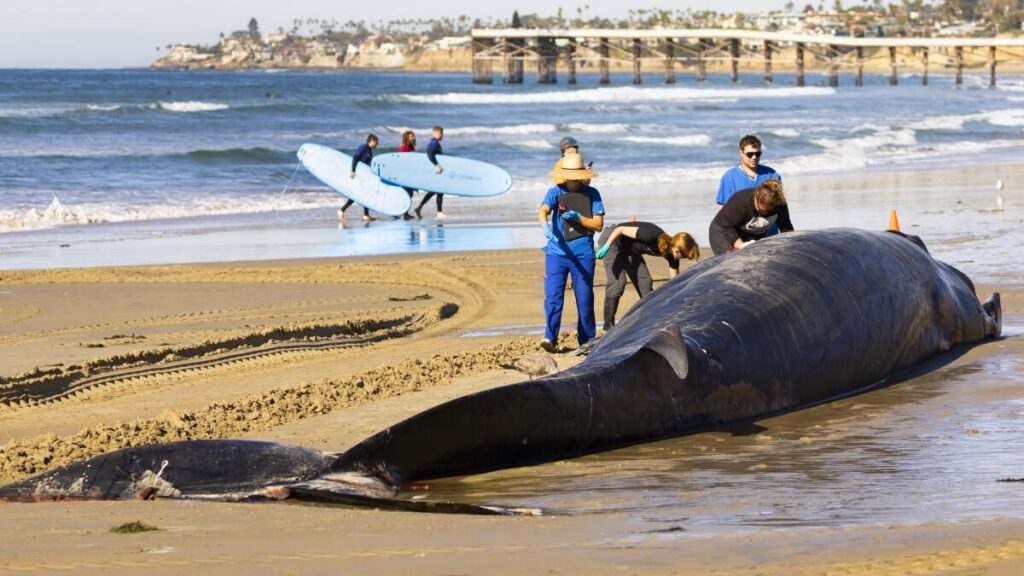A somber scene unfolded on Pacific Beach in San Diego as a lifeless 52-foot fin whale unexpectedly beached itself, prompting a collaborative effort between local authorities and the National Oceanic and Atmospheric Administration (NOAA) to address the unusual situation.
Despite concerted efforts to secure the whale’s tail to a small boat for towing back to the sea, the attempts proved unsuccessful, leaving the massive marine mammal stranded on the shore. NOAA researchers swiftly arrived at the scene to conduct an initial examination, aiming to unravel the mystery behind the unexpected demise of this female juvenile whale.
Surprisingly, the preliminary inspection revealed no discernible propeller marks or signs of a vessel collision on the whale’s body. The absence of these typical indicators deepened the mystery surrounding the circumstances of its death. With marine experts on site, the focus shifted to the urgent task of removing the whale from the beach.
The collaborative efforts between local authorities and NOAA underscore the significance of understanding the cause of the whale’s demise. Such investigations play a crucial role in shedding light on potential threats to marine life and informing conservation strategies.
As the removal operation unfolds, the hope is to expedite the process while maintaining the integrity of the whale for further examination. The NOAA researchers on site are set to delve deeper into the necropsy, a post-mortem examination of the whale, to unlock vital information about its health, potential environmental factors, and any underlying conditions that may have contributed to its tragic end.
The mysterious stranding serves as a poignant reminder of the challenges faced by marine life in our oceans. It also highlights the importance of ongoing research and conservation efforts to safeguard these majestic creatures and their habitats.
In the coming days, as the investigation progresses, the community and marine researchers alike will eagerly await the findings that may provide insights into the health of the local marine ecosystem and contribute to broader efforts to protect our oceans and the diverse life they support.
